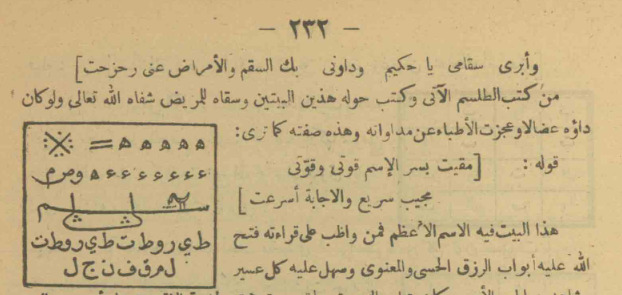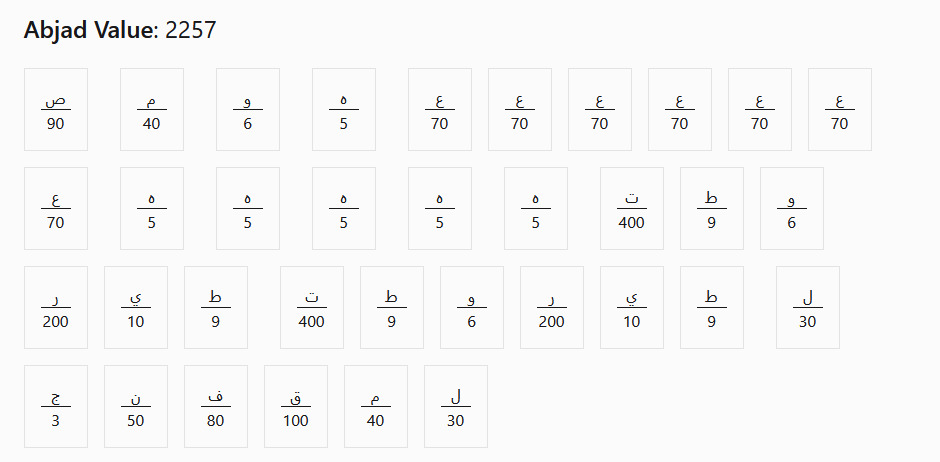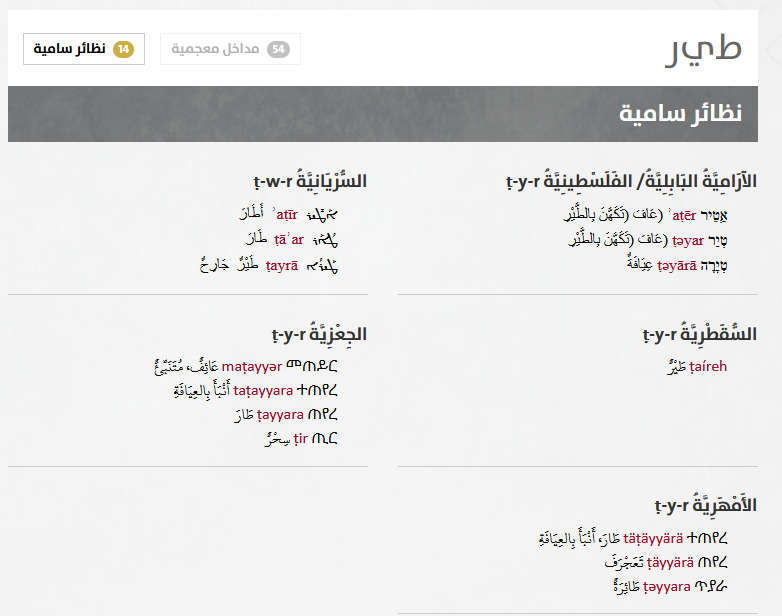- Joined
- Feb 1, 2023
- Messages
- 58
- Reaction score
- 210
- Awards
- 6
My complaint/critique of "In Islamic Talismans, Repeat-Letter Ciphers Representing the “Greatest Name” Relate to an Early Prototype of the Seven Seals and may Link the Seals with the Pleiades"
To summarize my own rambling down there, I just personally felt Lloyd D. Graham was shoehorning one set of symbol/seals into another set of symbol/seals and making a "connection" or origin story between them.


- The Seal of Great Name and the Pleiades Square are two different things.
*. The seven symbol seal/Solomonic Seal is based on the seven classical planets and even the poem itself that based on it focuses on planetary powers, if you asssume that the lunar mansions is a composite of elemental/planetary power then you wouldn't once use one of the Lunar Mansions "Al Thurayyā" specifically to lord over spirits, you would be using A symbol that: have all elemental powers combined in it, all planetary powers combined in it, all lunar mansions combined in it. Even if he wanted to use one then it would be Kochab, Polaris, or Canopus(maybe?)
*. All esoteric (islamic occult) authors from Morroco to Iran make that "table" of planetary correspondences associated with that specific symbol's seven parts. ( note: the transliteration is a bit janky/slight errors in it )

- acronym LMQFNJL is clearly also planetary, I don't know why he skip over that. The same complaint that I have for #1 applies here because…? there's clearly a sevenfold division and related to planetary symbols, divine names, and powers and not because 7 = Pleiades
- The dotted Cross connection doesn't even make sense because in some versions it is 7 and in most versions it is 4.
- The Abjad Value argument for 7 Ayin instead of 7 Hamza, you can look below and see that any of the calculation with Abjad show different numerological value for the Solomonic Seal AND for the 5 Ha'at Seal.
The abjad value for ayn is usually 70 but in talismans may simply be 7 with both numbers clearly relating to the seven repetitions usual for the character in the ciphers. Since the abjad value of hamza is 1, it seems fairly certain that the repeated glyph is indeed an ayn.
Abjad value of the Solomonic Seal:

Abjad Value of the Five Ha'at/"Pleiades Square":

Abjad Value of Five Ha'at with Lloyd's Suggestion:

Abjad Value of the Five Ha'at full seal found in Al Buni's Manba's/Fountian of Wisdom:

5. His assumption of طير is correct but then he burned the food, how did he reach طت is related to burqan...., What if it means Tair wa'tat طير وطت a bird lowered herself/brought herself down.
6. I would go and say that his statement about the bird doesn't make sense, it is literally a hoopoe because of it is apotropaic power, considering it is in healing talisman... you can see why would someone do image-magic with it. Following are Semitic equivalent of the root word T-y-r

I know that there's no conclusion in the end and that it ends abruptly, but I don't know what to say except that this is genuinely bothersome and doesn't add up in term of quality of stuff or structure considering what they're extrapolated to be the origin of it in comparison to what they actually are used for and what's actually being worked with these symbols. The only thing I can probably end this with is that I don't know if there's a way someone can see a symbol or multiple variant of symbols and shove them into another, and for me it is more of concerning considering how used I am to reading translated literature from X Language -> English, it make me wonder what extrapolation or assumption that the translator of manuscripts and texts approach the work with. Not saying that no one can translate any text to any language, just that it does make me wonder if the person or the translator have an agenda or assumption he wants to cajole the translated text into one specific version.
Website used:
Website used:
